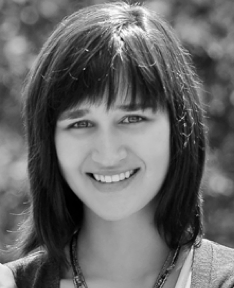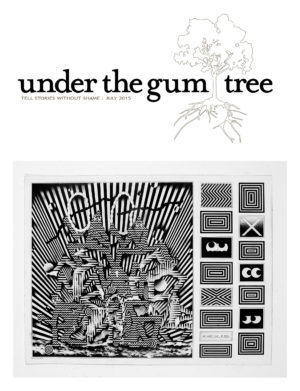Alaina Symanovich

Alaina’s piece, “Potato Salad Portraits” blends prose and poetry as she examines the constants and the inescapable changes in life. With a unique form and insightful narration, this piece walks the line between emotion and fact and leaves room for the reader to relate to the piece in a way that speaks to their life.
When and why did you start writing? What do you enjoy most about writing and how has writing shaped other aspects of your life?
I’ve been writing since I was in elementary school; I think I was drawn to storytelling as a way of empowering myself. I was an extremely timid child, mortified to sneeze in public or raise my hand in class. I found a lot of comfort in locking myself in my bedroom and creating a written world that wasn’t so intimidating. I’d like to believe that, over time, writing has become less about escaping my reality and more about understanding it, but I still sometimes run to my laptop for comfort just as I ran to my blue cheetah-print notebook.
What inspired you to write nonfiction in a world so drawn to the sensationalism of fiction?
I have the opposite problem of most writers: I can’t divorce my life from my writing. If I’m caught up in an intense emotion, it shows in my work. I am my own embarrassing parent, over-sharing about everything from bed-wetting to disastrous first dates.
How did you choose the subject for “Potato Salad Portraits”?
I was in a fiction workshop at Penn State (where I earned my BA and MA degrees), and one of our weekly prompts was to write about something you might find in the refrigerator.
The format of “Potato Salad Portraits” is fairly unique for a nonfiction piece. Did you consciously decide on this format and how do you feel it affected the piece?
This piece sprung up at an interesting time in my writing life. I’d just been introduced to the wacky miracle that is a prose poem and I was dying to experiment with the genre. I’d also just been introduced to the concept of the 100-Word story, which I saw as an exciting challenge. I think the marriage of these two forms helped make the prose poems truer to my memory than longer, detailed vignettes would have been. After all, most of the prose poems focus on memories that are more emotional than concrete. I reflect on these moments and I can recall the blue of the sky or the music of my family’s laughter, but I can’t recall nearly enough to flesh out an essay.
Potato Salad Portraits” is also a very short piece. How did you navigate writing the details and conveying emotions throughout this piece?
I drafted this piece quickly, without allotting much time for self-consciousness or second-guessing. I was in the mood to take a risk, so that’s what I did: I wrote what I felt without filtering or editing. (Though editing did happen later!) I wanted to be raw and honest with my writing in a way that would allow readers to connect with my memories. Hopefully, that approach made this piece emotionally available–brevity and all.
You have a book of poetry titled Fortune that is forthcoming. How do you navigate the space between poetry and prose when you write? Do you feel like these two styles overlap in your writing?
To this day, I’ll deny that I’m a poet to anyone who will listen. I haven’t been writing poetry for very long, so I feel this enormous, intimidating chasm between “real poets” and myself. With that said, I like the idea of allowing the two styles to overlap in my writing. There’s no bigger compliment than when someone says that my prose is like poetry.




